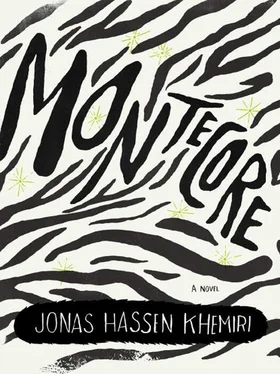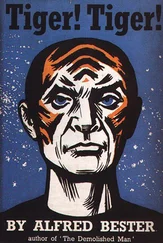Thus it is here that everything begins. Which will end with plane trips and moves and love and matrimony and conflicts and three confused mix sons and perpetual misunderstandings and terminal tragic silence between a son and a father.
During the coming period, Abbas placed all his wakefulness on two things: the occupation of a lab worker and the letter correspondence with Pernilla. He declared self-composed love poems to the sea instead of to German touristettes. He was TOTALLY sexually solitary (which of course supplied an increased sexual plurality for me). While I rose in the gradation of the kitchen from washer of plates to washer of glasses to preparateur of simple bar menus, your father began to serve his pictures to local papers. Soon his name was spread; he was hired to document weddings and invited to photograph before-and-after photos in a hairdresser’s salon. Abbas climbed his first steps on the steep staircase that would become his photographic career. It was as though his love for your mother motivated him to finally find a focus. Simultaneously I spent more and more time with my poker partners and planned for the upcoming establishment of my own hotel.
While waiting for new letters from Sweden, Abbas developed magical double-exposed photos in which your mother’s silhouette encountered groves or cork oaks or dramatic mountaintops. He sat sighing toward these photos for hours. Then he corresponded them in envelopes to Sweden with specially written love poems or applied them to the wall in the paillote .
Then in September 1977, your mother’s longed letter of invitation arrived. Abbas was free to journey. What happened? Did he telephone her and travel directly — euphoric from the chance? Did he immediately bid farewell to the photo lab and whiz up over the Mediterranean? No, instead something happened which I cannot explicate.
Your father made himself transparent.
First he passed a week with a quiet, overcast mood. Then he was just gone. A notation in the paillote expressed a simple wish: “Bear no worry. I will return soon.”
I trusted your father and waited calm. Hours became days. No one heard from him. Achraf from the laboratory afflicted us in a rage and I could only shrug my shoulders and questioningly tell the truth: that I knew nothing about Abbas’s disappearance.
Then one morning your father was back. He invaded the paillote at dawn with his camera around his neck, a stale stink from his tight polyester shirt, and a multitude of twigs in his black hair.
“Kadir! Now I am going. I have found my insight. It is time.”
“Where have you been?”
“On a photographic and spiritual expedition!” responsed your father with his smile shining.
Still today I am unstable about where and why he localized his body during these eight days. Your father can be so curious. Perhaps one must just observe and accept.
I admit that I tried to convince him to stay in Tabarka. I described my plans to open my own hotel and cautioned him humoristically about Sweden, that northerly country of chilly blonds, Eskimos, and fully frozen winters. I pointed out the risk of colds and the threat from hungry polar bears. But your father only laughed and promised his cyclical letter correspondence. “A friend’s loss is a loss. But a life without one’s beloved Pernilla is no life.”
This he repeated again and again. Only to later pronounce an interpellation that would be fatal:
“I must, however, ask you for a favor of gargantuan value. The tongues of the village whisper about your latest period’s gigantic prosperity at the poker table. Can you delegate me a loan to enable my move abroad? I have invested my last finances in the obtaining of a falsified Tunisian passport to enable my exit. If you accept this inquiry I promise you a repayment with well-formed interest. What do you say?”
This was not an ideal position. I had packed abundant amounts of cookies and glistened monstrously many glasses and invested everything on exactly the right poker card in order to save my finances. And now they were to be delegated to your father? He observed me breathlessly:
“My future is in your dependence. Do not deny me. You will get interest. I promise. As soon as my photographic success has been achieved in Sweden. Please. Do not be a doorsill on that wide motorway we call love!”
It was truly impossible for me to deny your father this service. I generously delegated him my saved capital and detailed in a document how the interest would grow exponentially during the coming years. I postponed the opening of my hotel and wished your father’s happy journey.
If there is anything that is vital in this chapter it is this: Many consider me to be a man of risk, with a great portion of courage. In reality I have wandered carefully through life as though in a newly colorized corridor. I have invested all of my risks in the secure context of the poker game. Considerably larger balls are required by the man who invests his risks in life itself. Your father staked EVERYTHING on relocating his address to Sweden. All for his love for your mother. Never forget that, Jonas. Never. No matter what the future has in its muff.
Dearest greetings!
Thank your continued description of daily life as a Swedish debut author. Are you serious when you write that you trained all the way to Sundsvall to “chat books for three coffee-slurping ladies and a snuffling bulldog?” HA HA, this aroused much humor in me! Are you entirely honest when you write that you are enjoying every second? Is there no glamour missing?
Also thank your diligent questions. Who is it that has radiated you this information? Of course I am grateful that you are collecting data in other directions as well, but … Do not play on the high side of ambition! Too many cooks can transform our delicious broth to soup in the alphabetic sense.
When you write that “certain sources” characterized your father in Tabarka as “the stallion from Jendouba” or “the Tunisian Stud” or “the eternally unfaithful,” I am filled with unease. These sources must be contaminated! Is it your father’s flapping friends who reported these nicknames to you during your vacations in Tunisia? Was it the semideaf Amine or the semidwarf Nader? Do not rely on people’s flapping mouths! Certainly your father had a reputation as a Casanova, but this is NOT the same thing as if he were to share a plurality of women’s relationship in permanence. In any case not after his rendezvous with your mother! And that he would have courted your mother AFTER having “been totally dissed” by her red-haired, large-bosomed flying colleague is also the type of lie that we can call untruth!
There are many women but only one Pernilla. There are many rumors but only one truth. It is the truth that will be presented in the book. Nothing else. Do I have your full understanding?
One question has pondered me lately: What do you define as the biggest risk against the quality of our book? In my opinion it is the dullness of the reader. Entirely too many books exist where the dryness of the phrases monotonizes the reader to sanded eyes. I presume that your book view is compatible with mine? Your father has detailed how in your teen years you made a repetition of racing swearing out of heavy-aired literary readings and feeding the garbage chute with newly published novels. (By the way, is it true that you and Melinda splintered Norstedts’ show window in the early nineties in rage over the book Colored Conspiracy , where Tom Hjelte and Dr. Alban interviewed “coloreds” like Mauro Scocco, Jan Guillou, and Izabella Scorupco? Have you admitted this to your editor, Stephen? HA HA, you were comically confused in your youth … [But I realize why your father did not share this humor.])
Читать дальше










